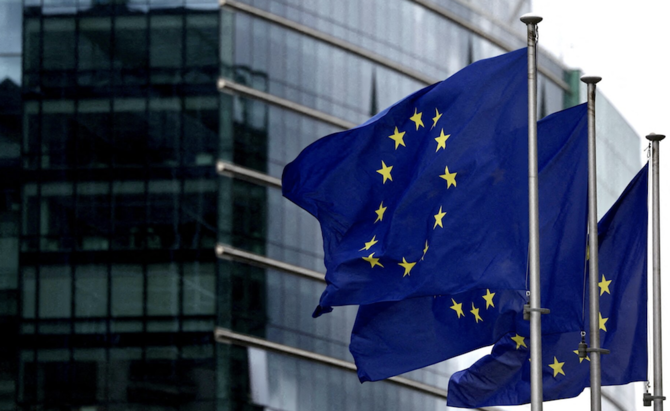Hafed Al-Ghwell
Europe’s approach to managing migration has long been predicated on a delicate balancing act that aims to uphold the continent’s cherished values of democracy, human rights, and the rule of law while simultaneously securing its borders against irregular migration. However, the strategies deployed to achieve these aims increasingly highlight a paradox at the heart of European policy.
In dealings with the Maghreb in particular, a region that is crucial to Europe due to its geographical proximity and role as a transit zone for migrants heading toward the continent, the EU finds itself in a catch-22 situation. The quandary arises from Europe’s reliance on agreements with local strongmen to curb migrant flows, a tactic that risks entrenching authoritarian rule and compromising the very democratic ideals the bloc purports to embody.
The thrust of this narrative hinges upon acknowledging the complex interplay between the European desire for security and its purported commitment to promoting democracy. Europe’s engagements in the Maghreb, and potentially beyond, exemplify this dilemma.
Even a cursory analysis of Brussels’ strategies to harmonize divergent European policies in North Africa reveals the bloc has often made significant financial and political concessions to authoritarian regimes in an effort to bolster the capacities of those regimes to manage migration flows, thereby effectively acting as gatekeepers for “Fortress Europe.”
While the immediate effects of such policies might seem beneficial to the EU in terms of its migration concerns, the medium-to-long-term implications reveal myriad “invisible costs.” These costs not only undermine the EU’s foundational values but also perpetuate instability and human suffering in the very regions it aims to stabilize. This predicament underlines a stark reality: In its quest to control migration, Europe might inadvertently become an underwriter of future despots.
By funneling billions into the coffers of authoritarian leaders, ostensibly for border management and migration control, the EU empowers these regimes, affording them both the means and the legitimacy to tighten their grip on power. The provision of external diplomatic backing that is often inherent in these deals further entrenches the regimes, as it is perceived as tacit endorsement of their brand of governance.
One of the most profound invisible costs of such a strategy has been the exacerbation of human rights abuses in origin and transit countries. Authorities in these places, often bolstered by European funds, reportedly engage in practices ranging from arbitrary detentions to torture and other extrajudicial abuses of desperate migrants.
Notably, the EU’s support for the Libyan Coast Guard has been roundly criticized for facilitating the interception of migrants at sea and repatriation to Libya, where they face appalling conditions in makeshift detention facilities to which humanitarian organizations are often denied access.
This assistance, albeit aimed at curtailing migration, inadvertently helps to uphold an ecosystem of well-documented abuses and violations of fundamental human rights that Europe repeatedly refuses to address.
Another troubling cost is the strengthening of authoritarian regimes which, backed by European funding and political support, might further entrench their power. The financial and technical assistance provided to these governments for the purposes of migration management often ends up supporting the security apparatus that suppresses opposition and dissent, undercuts democratic movements, and sustains exclusionary patronage networks.
Such provision of blank checks can make the EU complicit in the reinforcement of authoritarian practices and undermine the prospects for democratic governance in a restless part of the world.
Moreover, the injection of funds into regimes with notable governance deficits and a lack of rule of law does little to address the root causes of migration, such as economic instability, high levels of unemployment and social inequality.
Instead, the focus on securing borders and migration control detracts from investments that could foster economic development and stability, reduce incentives for irregular migration, and ultimately benefit both transit and destination countries.
Furthermore, by channeling substantial funds toward repressive regimes, the EU risks contributing to the further economic decline and social fragmentation of already poverty-stricken countries, as governance becomes more focused on maintaining power rather than promoting development and welfare. A less-discussed spillover of all this is the irony of how the EU’s myopia in its “cash for migrant control” schemes will only make migration itself a very valuable leverage point, even for origin countries.
Recognizing the EU’s desperation to curb migration flows, governments might use the threat of loosening border controls, or even actively pushing migrants toward Europe, as bargaining chips to extract more favorable deals, aid or concessions from Brussels. These deals are often premised on vague promises to address the push factors of migration, which these governments are either unwilling or unable to tackle meaningfully due to entrenched governance deficits.
Lastly, the lack of effective enforcement mechanisms to ensure that EU funding and aid are used as intended represents a critical oversight. Without stringent monitoring, transparency, and accountability measures, there is a significant risk that this assistance will not reach the intended targets, be they programs for economic development, capacity building or the protection of human rights. Instead, the assistance might end up bankrolling corrupt practices, enriching elites, and fortifying the security structures of oppressive regimes.
The implications of Europe’s current strategy are clear and profound. Firstly, it contravenes the foundational values upon which the EU is built, thereby eroding its moral and ethical standing both at home and on the international stage.
Secondly, it is a shortsighted tactic. While it might yield immediate reductions in migrant arrivals it neglects the root causes of the migration, such as conflict, persecution, the intensifying effects of climate change, and economic disparity, all of which are exacerbated by authoritarian governance.
Finally, the European approach risks fostering instability in the region. By supporting authoritarian regimes, the EU might inadvertently destabilize those very governments, either by bolstering opposition forces or by contributing to the grievances that fuel dissent.
The situation presents European policymakers with a profound moral and strategic challenge. The pursuit of Fortress Europe through deals with authoritarian regimes not only compromises the bloc’s foundational values but also risks long-term instability in origin and transit countries in the Maghreb, right on Europe’s doorstep.
Addressing this challenge necessitates a reevaluation of European migration policies, with an emphasis on options that do not sacrifice democratic principles for the sake of expediency. Moreover, Europe must invest in long-term solutions that address the root causes of migration, fostering cooperation and development rather than dependency and autocracy. Developing more sustainable, ethical and effective approaches to migration will not only benefit the EU but also contribute to global stability and prosperity.







